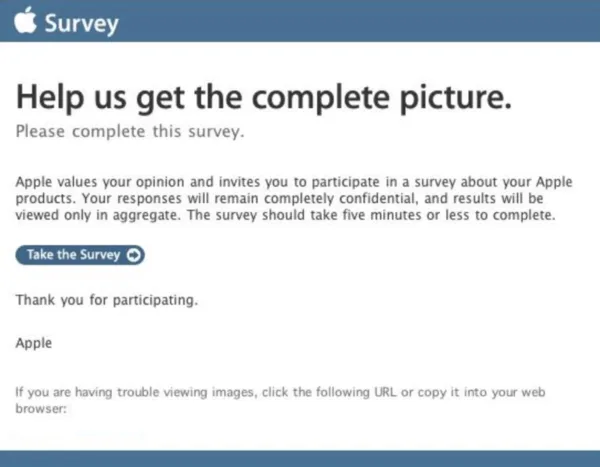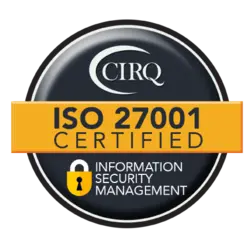Steps to Conduct a Successful Market Survey
Market Survey Research to make your Business Boom
We wouldn’t be venturing too far when we say that while the word ‘apple’ elicits images of the precious pome, it also conjures up images of the gadget giant known for making top-of-the-line personal computing devices.
Founded just three decades ago, the technological namesake of this flavorsome fruit has quickly climbed the ranks of a competitive entrepreneurial world and earned billions of dollars. Apple’s growth can be attributed to how it has perfected its craft in one key avenue – its commitment to client satisfaction.
Every business knows that customers are its backbone. However, not all companies enjoy Apple’s level of success. Therefore, comprehending the tech giant’s success requires studying the focus of its strategies and tactics and the lesson that can be gleaned from it.

In 2011, Apple launched an interesting tool titled the ‘Apple Customer Pulse,’ a platform that enabled customers to give detailed feedback about their concerns regarding the company’s products. Based on this client input, Apple was able to elevate its gadgets by equipping them with features customers wanted to access.
For the company, the introduction of this platform led to an increase in customer loyalty, and its sales flew through the roof. Neither would have been possible if it wasn’t for the Apple Customer Pulse, which was, for all intents and purposes, a cleverly marketed market survey.
Apple managed to hone its services because it conducted a market survey, which allowed the company to reach new milestones.

What Is a Market Survey?
Often used interchangeably with the term ‘market research,’ a market survey is an instrument that helps businesses comprehend customer inclinations.
When you invest in your products, you want to make sure they don’t generate a loss as a business leader. Keeping this in mind, you introduce an item or service and investigate whether it will even sell.
Using a survey in marketing research can unearth information about your customers’ spending power. It can shed light on your target population’s demands, expectations, and choices. With these insights on hand, you can determine what features should be present in your products and services for them to be successful.
Market surveys can also enlighten you about how you can enhance the goods you’ve already placed in the market.
For instance, let’s assume that you have released a line of protein shakes. Conducting a post-launch survey can generate feedback from customers. You’ll be able to measure market response, whether your targeted customers like the offering or its taste and texture can be improved.
The convenience of market surveys makes them a sought-after market research strategy. Standardized questions allow you to view results as quantifiable data. These surveys accommodate large sample sizes, guaranteeing that you are rewarded with insights from numerous clients.
Integrating surveys in marketing research further promises a cost-effective data-gathering technique. Remember, if you were to conduct an online focus group study, you have to recruit and provide incentives for each participant to secure their attendance. Still, qualitative methods have a specific purpose in the research process.
On the other hand, a market survey only asks for a sliver of respondents’ time, usually voluntarily given for free. Plus, the notion that you can carry out surveys with hundreds of people alleviates the anxiety of doing if an individual refuses to participate. As long as your sample remains cross-sectional, you can always recruit a different customer as a survey participant if someone is unwilling to respond.
Market surveys also don’t require you to conduct detailed interviews or case studies. With market surveys, you won’t have to sacrifice research quality if you are pressed for time.

How are great market surveys conducted?
A myriad of approaches and options are available for creating and conducting market surveys. Your job is to select the strategies that help navigate the concerns your own business is facing. Among other factors, you must keep in mind, make sure to:
How to choose the right market survey method
How you choose to conduct your market survey will depend on several factors, including your sample size, the availability of time, and the kind of details you require.
You will also have to consider the best way you can facilitate your participants. For instance, it’s likely that you want to reduce expenses to the bare minimum, so you might be more inclined to conduct an online survey.
Sent to respondents through email or published on your company’s website and social media page, an online market survey can be completed at the click of a button and hardly ever incurs a considerable cost.
One of the most effective ways to find survey participants online and target the precise audiences you are seeking is to employ a market research panel company. Many of these firms can rapidly connect you with completed interviews from both consumer panel members and B2B panel target audience titles from a diverse range of industry sectors.
However, not all of your respondents will be tech-savvy or with access to a phone or computer. To accommodate folks who constitute this group, you may have to create paper versions of the survey that can be mailed to participants.
However, the latter poses a risk of a low response rate, because often respondents forget to mail them back, and you might have to make a resilient effort to re-acquire the completed surveys.
For some participants, reading the written word may be difficult. In this case, your survey method of choice should include a phone call.
Telephone-based surveys are effective when a concise conversation progresses smoothly. To gain the most from these surveys, prepare a script before you make a call, as knowing what to say beforehand can ensure you cover participants faster.
Selecting the right market survey type
There are different types of market surveys out there. Each survey type is structured according to specific paradigms. Depending on your research objectives, you can choose from the following:
- Market Investigation Surveys – These surveys focus on analyzing the contemporary trends in your niche. They can help you see who your biggest competition in the market is, and what promotional techniques the big players are using. If you’re looking to innovate and beat your rivals, this survey is perfect for you.
- Customer Profiling Surveys – These surveys help identify demographics with regards to your client base. These can assist you in recognizing which groups of people most frequently purchase your products and services and discovering what your company is lacking that makes it inaccessible for those who aren’t a part of your customer network. Knowing this, you can make changes to accommodate the needs of people who aren’t engaging with your business at the moment.
- Customer Motivation Surveys – These surveys look into the reasons why customers make certain choices. If, for instance, you are offering counseling services to people struggling with their mental health, you can use this kind of survey to inquire potential clients why they prefer a certain treatment approach. In case most respondents state that working with a life coach who is impatient with the former’s progress makes them feel inadequate, you will know that to retain clients, you should employ a calm and gentle consultative tone in your practice.
- Product/Service Fulfillment Surveys – These surveys seek to find if customers feel they have received what was advertised in your promotional messages. These surveys are conducted in the days following a product launch and can help you fix early issues that customers encounter.
- New Product Concept Analysis Surveys – These surveys test the waters when it comes to creating a new product. You can use these surveys when you are brainstorming new ideas for your business. If, for example, you are thinking of manufacturing notebooks, you can survey your audience to see if they would like the product to come with pastel-colored covers or if brighter hues are preferred. You can proceed accordingly after knowing your clients’ desires.
Selecting the right sample source for your market survey
It would be a dream come true if you could survey your entire target population. Doing so would give you the most accurate and holistic answers.
However, if your customer base is spread across the country and numbers in millions, the entirety of it may be impossible to recruit. In this scenario, you must select a representative portion of the population as your market research sample.
The right approach to selecting a sample ensures that there is no sampling bias. Incorrect and unrepresentative recruitment of respondents can bring bias and render your research invalid. Sampling bias is introduced when significant characteristics of the target population are not featured or when parts of the data that have been gathered are removed or go missing.
A market survey doesn’t end when you have collected data from participants. The finishing touches to your research entail analyzing information and using the insights generated to improve your company’s performance.
The global entrepreneurial landscape is a tumultuous terrain. New companies are born at the speed of light, but the curtains close on them as soon as they’ve taken center stage. In these fast-paced times, many businesses struggle to keep up and survive. Help your business boom through effective market research conducted via market surveys.
Follow
OvationMR

Jim Whaley
Author
Jim Whaley is a business leader, market research expert, and writer. He posts frequently on The Standard Ovation and other industry blogs.
OvationMR is a global provider of first-party data for those seeking solutions that require information for informed business decisions.
OvationMR is a leader in delivering insights and reliable results across a variety of industry sectors around the globe consistently for market research professionals and management consultants.
Expert help with market research...
We are ready to offer you...
A Project Estimate or Proposal
License EthOS Research Hub




